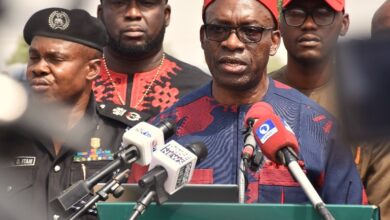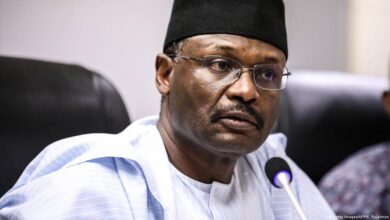Dignitaries set to storm Owerri for first international convention on drug abuse

(DDM) – Respected Nigerian academic and administrator, Professor Alkasum Abba, has faulted the Bola Tinubu-led administration for worsening the country’s economic crisis, despite its earlier promise to implement reforms that would stabilize growth and improve citizens’ welfare.
Diaspora Digital Media (DDM) gathered that Professor Abba made the remarks in a recent interview, expressing grave concern over what he described as the “deepening hardship” faced by millions of Nigerians since the current administration assumed office in May 2023.
He said President Tinubu, who once declared that he inherited a terrible economy, has now “made it worse,” leaving citizens to bear the brunt of misguided policies and poor fiscal management.
According to the professor, Nigeria’s economy, already fragile under the previous administration, has continued to deteriorate due to government actions such as the removal of fuel subsidy, the floating of the naira, and ineffective economic planning.
“These reforms were presented as steps toward economic recovery,” Abba explained, “but in reality, they have pushed inflation to historic levels, made essential goods unaffordable, and increased poverty among working families.”
He observed that the cost of living has spiraled out of control, with food, transportation, and healthcare expenses rising beyond the reach of the average Nigerian.
Small businesses, he added, have been hit particularly hard by soaring energy prices and an unstable exchange rate, making it increasingly difficult for them to survive.
“The continued rise in prices without any increase in income has eroded the purchasing power of workers and crushed the middle class,” he lamented.
Professor Abba also accused the government of lacking a coherent economic blueprint, arguing that its reliance on short-term fiscal measures has failed to address the root causes of Nigeria’s financial instability.
He stated that the administration’s “trial-and-error” approach has created uncertainty for investors and deepened public frustration.
“The policies are rushed, poorly communicated, and disconnected from the real struggles of ordinary Nigerians,” Abba said. “What we see is confusion, not reform.”
He further criticized the government’s handling of public outcry over inflation and economic hardship, noting that instead of taking decisive steps to cushion the impact, officials have continued to defend unpopular policies without offering concrete relief.
Abba stressed that Nigeria’s economic challenges cannot be solved through austerity or rhetoric but through inclusive, transparent, and evidence-based policymaking that puts citizens first.
He urged the federal government to review its economic policies immediately, promote domestic production, support small and medium enterprises, and stabilize the value of the naira.
“Government must stop relying on slogans,” he warned, “and start building real solutions that restore confidence and revive productivity.”
According to him, long-term recovery requires structural reforms anchored on job creation, agricultural development, industrial revival, and credible anti-corruption measures.
He also called on President Tinubu to seek broader consultation with economic experts and civil society stakeholders to ensure that policy decisions reflect the realities of the nation’s economy.
“The welfare of citizens should be at the heart of every government decision,” Abba insisted.
“The hardship people face today is unprecedented, and ignoring it could lead to deeper social unrest.”
He concluded by warning that the government’s credibility is at stake if it continues to dismiss the struggles of ordinary Nigerians while defending policies that have yet to deliver results.
“President Tinubu said that he inherited a terrible economy,” Abba said pointedly, “but he has made the economy worse.”
Post Views: 55





